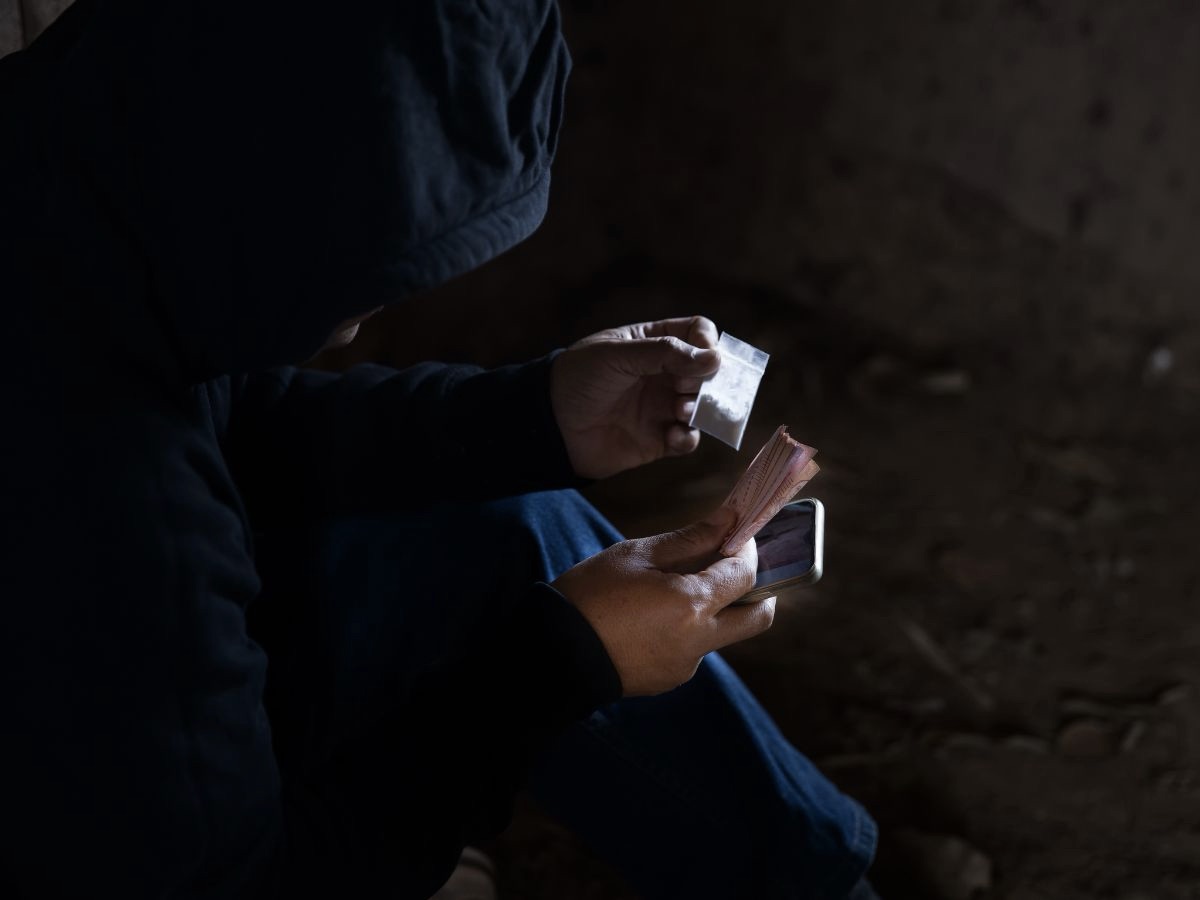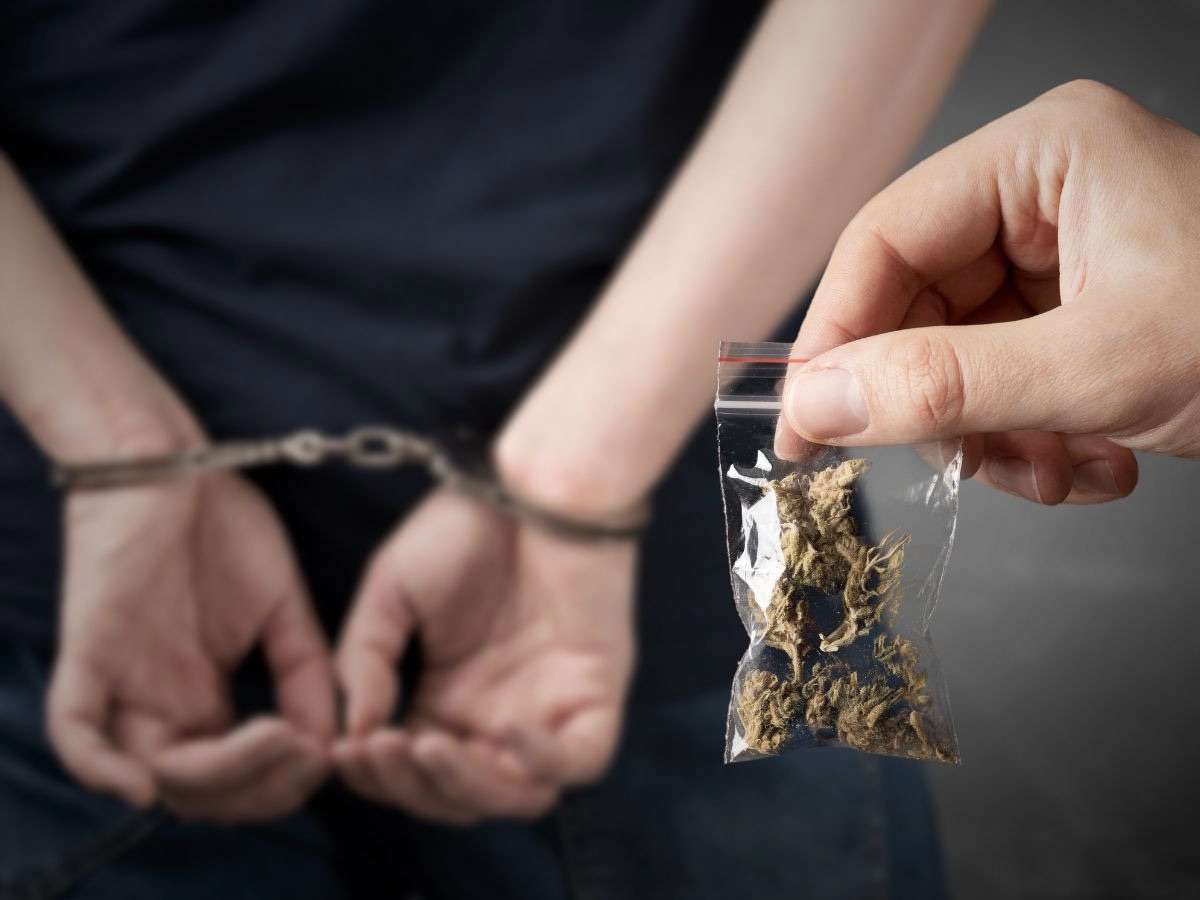December 13, 2023

Any person found in possession of a controlled substance can be in a great deal of legal trouble no matter what state they’re in.
Now, what if the prosecutor was able to prove that the individual wasn’t just in possession of drugs, but also had the intent to distribute them?
That can certainly make the situation 10 times worse, and things can quickly spiral after that unless you retain the representation of a skilled drug crime lawyer.
Yet, before we get into that, let’s start at the beginning. What does possession with intent to distribute mean in Texas? And what are the possible charges of this crime?
Let’s find out.
What Is Possession with Intent to Distribute in Texas?
According to the state legal policy known as the Texas Controlled Substance Act, possession with intent to distribute is a clear violation of the law. This means that it’s illegal to possess, manufacture, or distribute drugs for whatever reason. As long as you have four or more grams of high-abuse drugs, such as opium, or up to 28 grams of low-abuse drugs like Xanax, you’ll be charged with possession.
How Does Texas Define ‘Possession’?
The Texas Penal Code defines ‘possession’ as the “actual care, custody, control, or management” of a drug.
So, as long as the search was legal, police could easily hit you with a possession charge. Then, it’s up to the prosecutor and judge to decide on what the punishment will be for said charge depending on the type of drug and the amount you had when you were caught.
How Does Texas Define ‘Intent’?
‘Intent’ is defined as an individual’s conscious decision to commit an act that violates the law.
An ‘intent to distribute’ charge can be much harder to execute. This is because for you to be found guilty of an ‘intent to distribute’ charge, the prosecutor has to be able to prove beyond a shadow of a doubt that you knowingly manufactured the drug or had the intention of distributing it.
In other words, the prosecutor has to provide the court with credible witnesses and evidence that shows you had a role in the making of the drug or you had plans to distribute them.
The former is usually easier to prove, providing there’s actual physical evidence. This can be anything from the equipment used in the manufacturing process to the materials used. The prosecutor can also use witness testimony against proving you had a hand in making the drugs.
On the flip side, finding proof that you were preparing to distribute the drugs is much harder to prove in court. They usually rely on a handful of circumstantial evidence that they can use against you, such as:
- Excess cash
- Possessing more drugs than deemed necessary for personal use
- The material used to package the drugs
- Weapons
- Equipment that could be used to transport materials used in manufacturing drugs
- Possessing chemicals needed to manufacture a controlled substance
What Are the Penalties for Possession with the Intent to Distribute in Texas?
In the Lone Star State, the Texas Controlled Substance Act not only defines each charge but also categorizes the various types of drugs by group.
The policy clearly outlines the fines and penalties for each possession and distribution charge based on the type of ‘group’ of drugs you had on you. It also depends on how much of the drug you were caught with and were intending to distribute.
Here’s a brief look at what those groups are and the penalties associated with each one.
Penalty Group 1
Group 1 consists of all high-abuse drugs like opium, cocaine, methamphetamines, and date rape drugs.
- Up to 4 grams: A second-degree felony punishable by a fine of up to $10,000, up to 20 years in prison, or both.
- Up to 200 grams: A second-degree felony punishable by a fine of up to $10,000, up to 99 years in prison, or both.
- More than 200 grams: This is treated as an enhanced first-degree felony, and is punishable by a fine of up to $250,000, up to 99 years in prison, or both.
Penalty Group 2
Group 2 includes high-abuse substances, such as hallucinogens.
- Up to 4 grams: A second-degree felony punishable by a fine of up to $10,000, up to 20 years in prison, or both.
- Up to 400 grams: A first-degree felony punishable by a fine of up to $10,000, up to 99 years in prison, or both.
- More than 400 grams: An enhanced first-degree felony punishable by a fine of up to $100,000, up to 99 years in prison, or both.
Penalty Group 3
Groups 3 and 4 are made up of lower-abuse substances like acid, Xanax, or prescription drugs.
- Less than 28 grams: A state jail felony punishable by a fine of up to $10,000, up to 2 years in prison, or both.
- Up to 200 grams: A second-degree felony punishable by a fine of up to $10,000, up to 20 years in prison, or both.
- Up to 400 grams: Charges are similar to those stated in Group 2.
- More than 400 grams: Charges are similar to those stated in Group 2.
Marijuana

The penalty for possession of marijuana with the intent to distribute is much lower than those mentioned above. That’s why it has its own category.
The minimum penalty for the possession of ¼-ounce or less of marijuana with the intent to distribute carries a maximum of one year in county jail and a fine of $4,000.
The maximum penalty is for possession of more than 2,000 pounds. This is an enhanced first-degree felony punishable by a maximum of 99 years in state prison, a fine of up to $100,000, or both.
A Final Note
Have you, or someone you know, been arrested for possession with intent to distribute? Then, your best strategy to fight off this type of charge is to find an experienced defense lawyer who has handled similar charges in Texas before.
They need to have obtained several ‘Not Guilty’ verdicts in the courtroom. They should have had experience in trying various defense strategies, such as disproving the prosecutor’s claims, discrediting witnesses, and proving that your 4th Amendment right was violated.
Contact the law offices of George Napier today at (713) 470-4097 or send a message to schedule a no-obligation free-of-charge consultation and start planning the best defense possible.